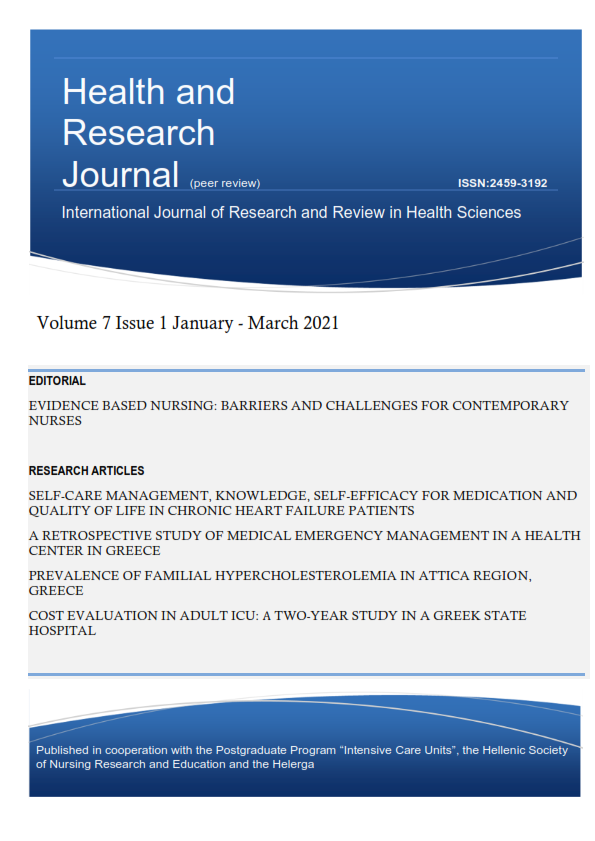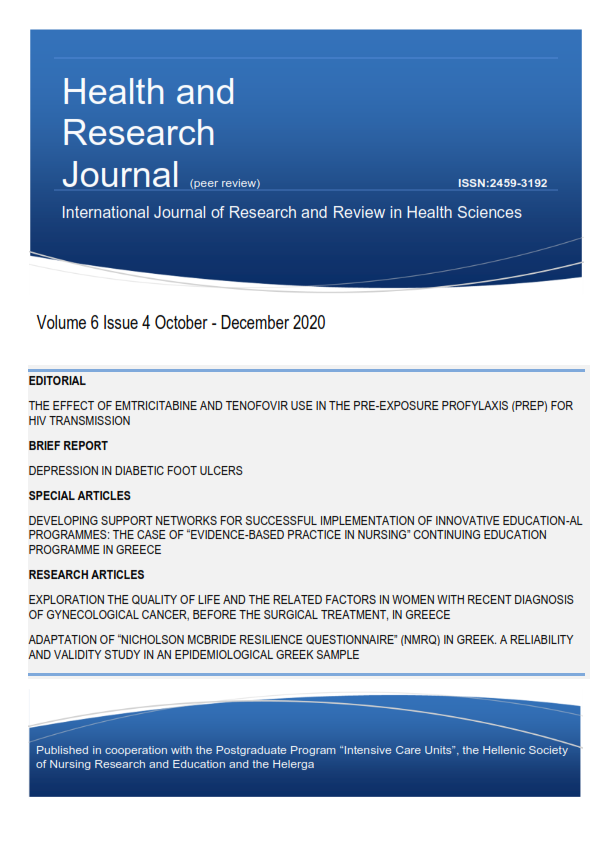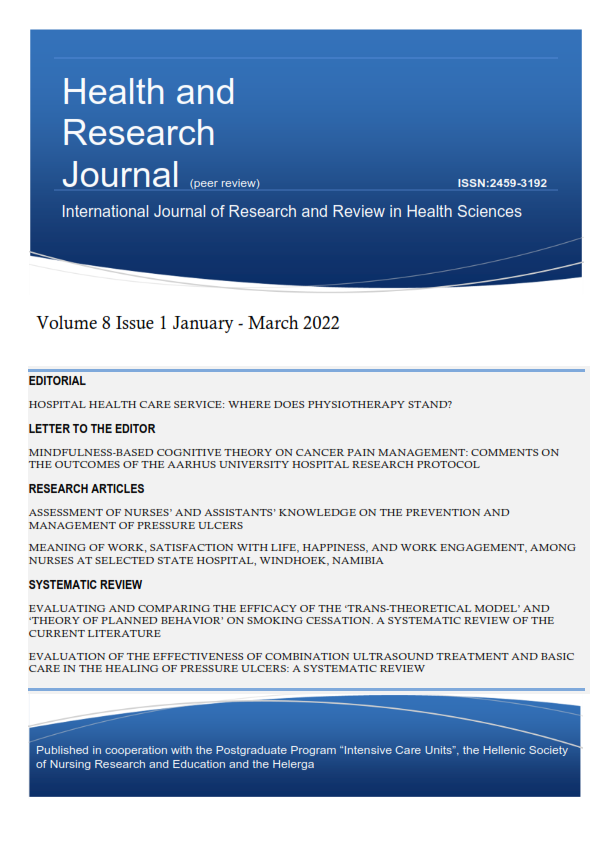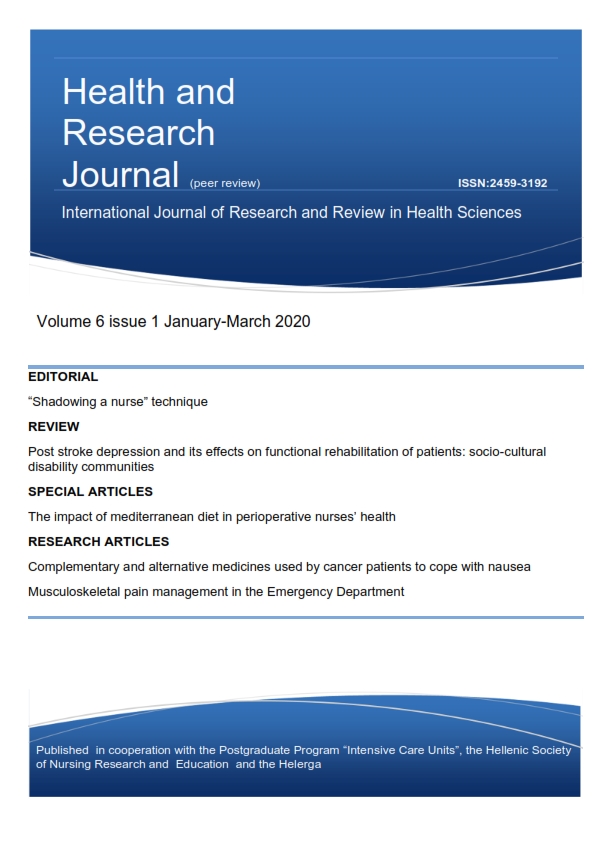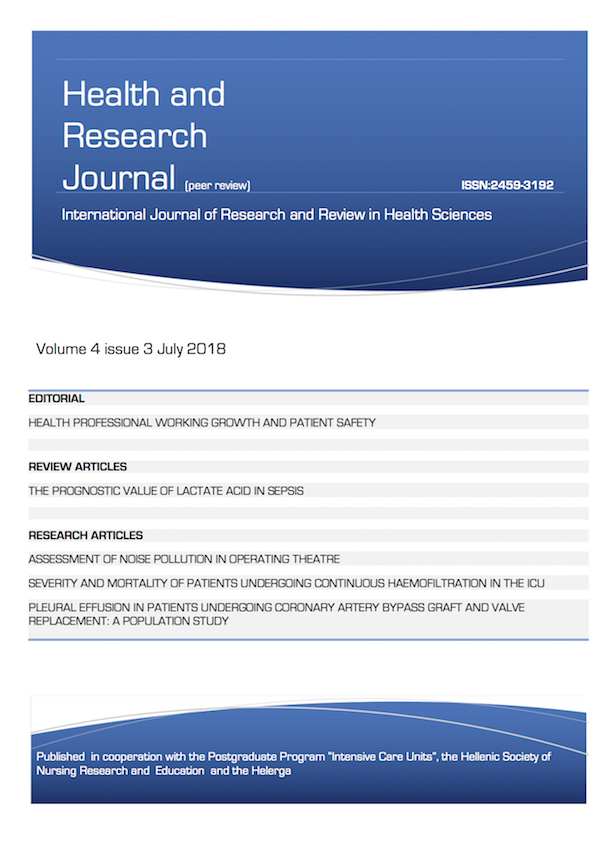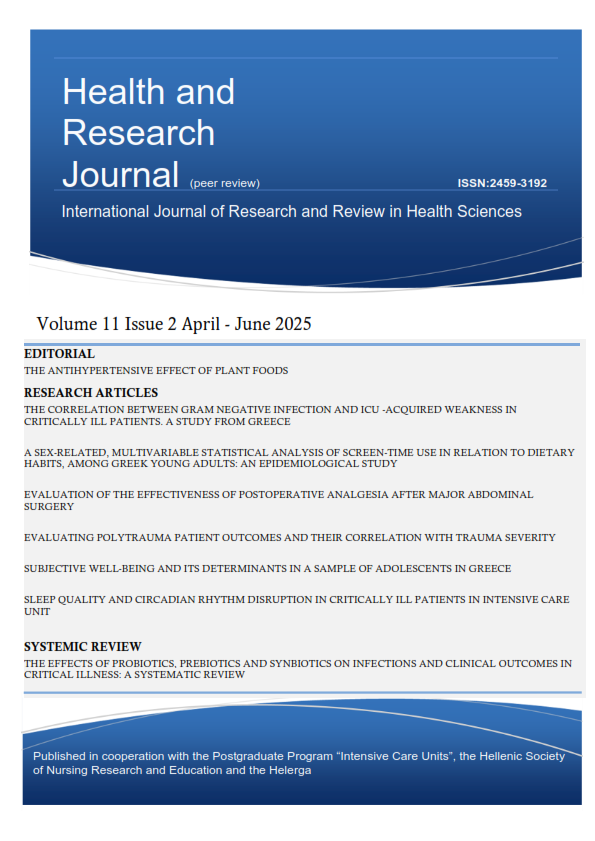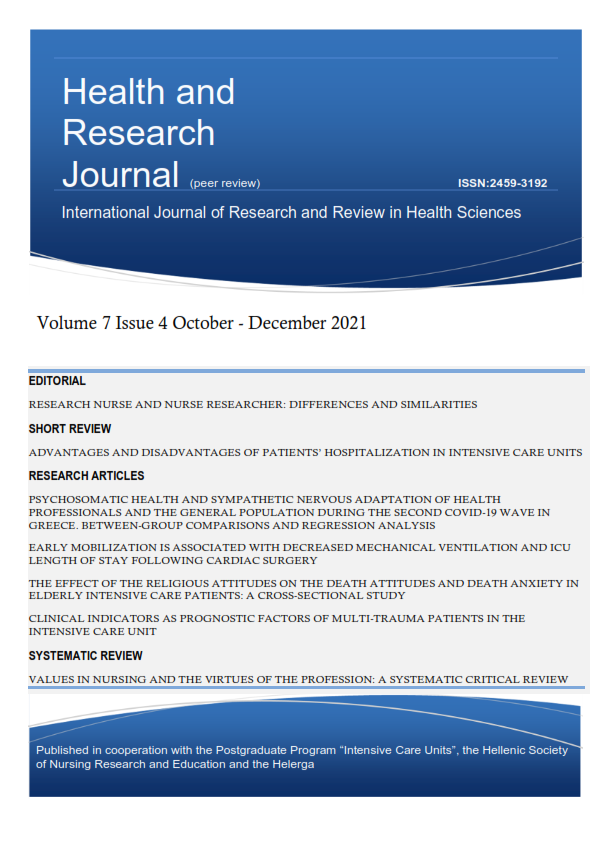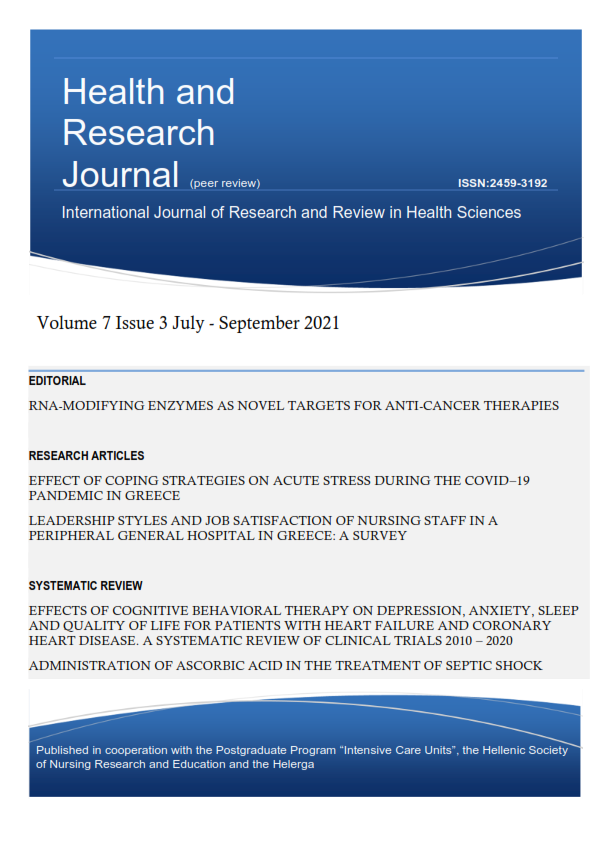Religiosity and coronary heart disease In Greek adults
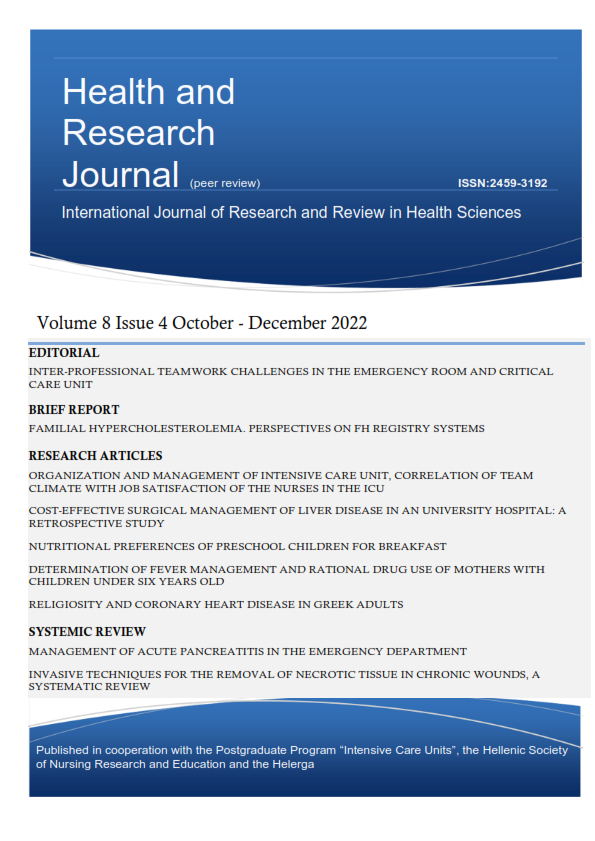
Abstract
Background: In developed countries, cardiovascular disease is the most common cause of both death and functional disability. The last decades, scientific community shows an increasing interest exploring the relationship between religious and health factors.
Aim: The aim of the present study was to explore associations between factors related to religiosity and self-reported Coronary Heart Disease (CHD).
Material and Method: This was a descriptive observational study, conducted during a 2-year period. The final studied sample consisted of 1062 citizens of Greece. Data collection was performed by using a special designed questionnaire based on relevant literature review.
Results: Half of the studied sample was men, (n=529, 49.9%). The majority of participants (77.1%) was living in urban areas of the country and was mean educated (67.1%). When asked about their employment status, most of them (65%) answered that they were professionally active. As far as their medical history is concerned, the majority of participants (88%) had no CHD history, no history of diabetes mellitus (90.3%), no history of dyslipidemias (71.8%) and no history of hypertension (71.8%). Moreover, 29.9% of the participants were overweight. Religious fasting follows 51.4% of the sample and the reason for fasting is because the church imposes fasting rules. The factor “fasting” was also related to CHD occurrence, as those who were following religious fasting had no history of CHD. A significant difference was found between responders with conscious belief in God and CHD occurrence.
Conclusion: The findings of this study suggest that factors related to religiosity, such as doubt in God belief and religious fasting may influence CHD incidence. Prospective cohort studies and clinical trial studies that specifically designed to assess the effect of religiosity on CHD outcome are necessary to be conducted.
Article Details
- How to Cite
-
Anadiotis, A., Toylia, G., Kapadochos, T., & Tsioufis, K. (2022). Religiosity and coronary heart disease In Greek adults . Health & Research Journal, 8(4), 311–324. https://doi.org/10.12681/healthresj.31639
- Section
- Original Articles
Copyright notice:
Authors retain copyright of their work and grant the Health and Research Journal the right of first publication.
License:
Articles are published under the Creative Commons Attribution 4.0 International License (CC BY 4.0). This license permits use, sharing, adaptation, distribution, and reproduction in any medium or format, including for commercial purposes, provided that appropriate credit is given to the author(s) and the original publication in this journal, a link to the license is provided, and any changes are indicated.
Attribution requirement:
Any reuse must include the article citation and DOI (where available), and indicate if changes were made.



